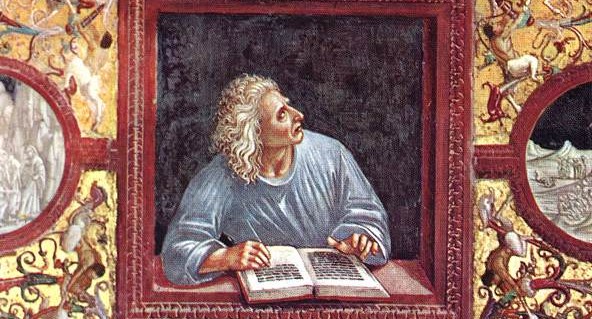Birth of Virgil

Painting of the poet by Luca Signorelli
15 October, AD 70: Virgil, the greatest Roman poet, was born near Mantua.
His great works are The Eclogues:
O let the last days of a long life remain to me,
and the inspiration to tell how great your deeds will be:
Thracian Orpheus and Linus will not overcome me in song,
though his mother helps the one, his father the other.*
The mock-rural The Georgics:
So, the sun will give you signs of what late evening brings,
and from where a fair-weather wind blows the clouds,
or what the rain-filled southerly intends. Who dares to say
the sun tricks us? He often warns us that hidden troubles
threaten, that treachery and secret wars are breeding.
He pitied Rome when Caesar was killed,
and hid his shining face in gloomy darkness,
and an impious age feared eternal night.
At that time earth, and the level sea,
troublesome dogs, and fateful birds, gave omens.
and The Aeneid:
I sing of arms and the man, he who, exiled by fate,
first came from the coast of Troy to Italy, and to
Lavinian shores – hurled about endlessly by land and sea,
by the will of the gods, by cruel Juno’s remorseless anger,
long suffering also in war, until he founded a city
and brought his gods to Latium: from that the Latin people
came, the lords of Alba Longa, the walls of noble Rome.
Muse, tell me the cause: how was she offended in her divinity,
how was she grieved, the Queen of Heaven, to drive a man,
noted for virtue, to endure such dangers, to face so many
trials? Can there be such anger in the minds of the gods?*
[*Translated by A. S. Kline © Copyright 2001, 2002 – see http://www.poetryintranslation.com/PITBR/Latin/Virgil]Leave a comment...
While your email address is required to post a comment, it will NOT be published.



0 Comments